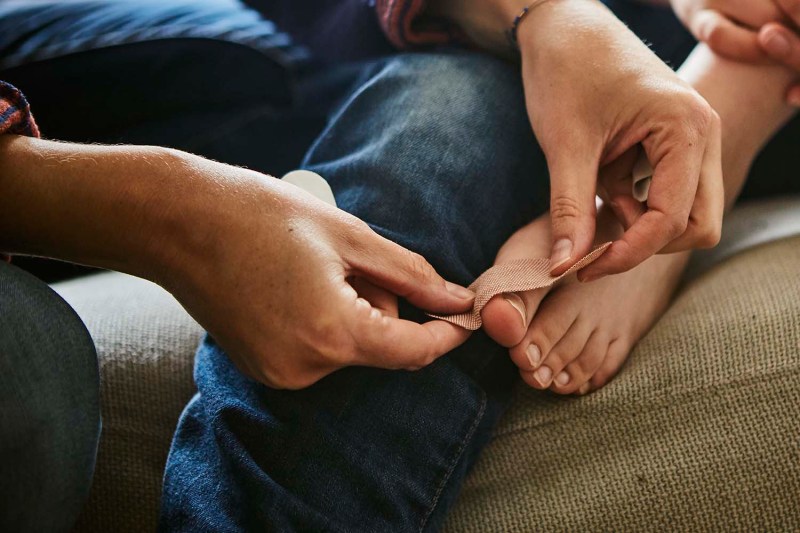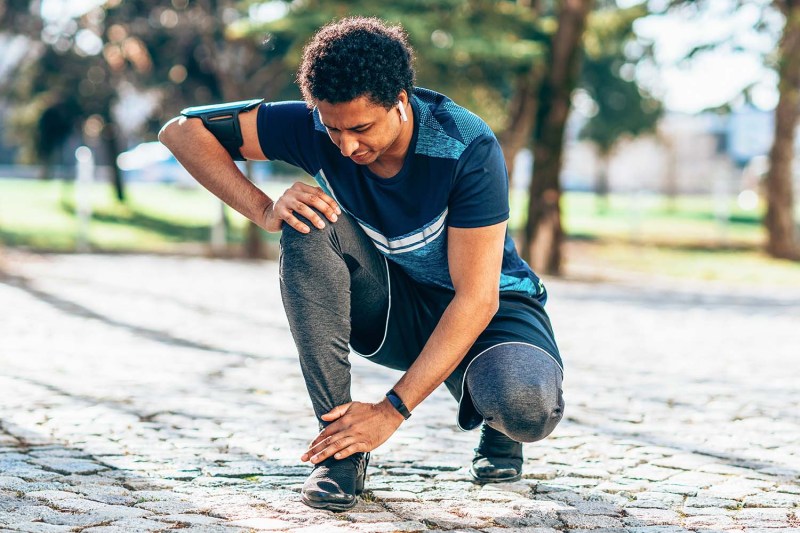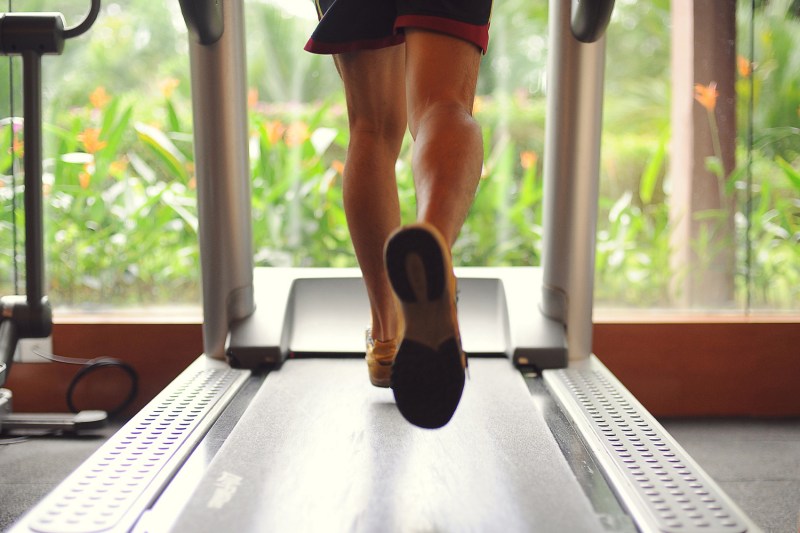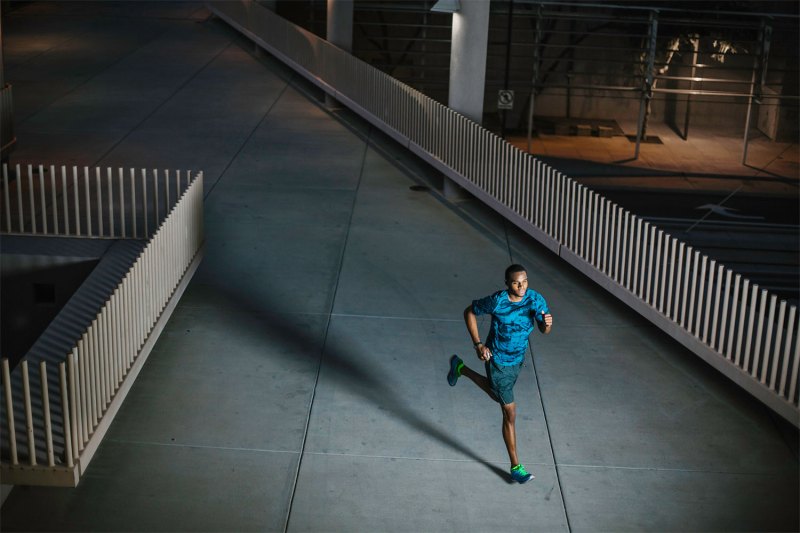Running is one of the best exercises for humans. We are literally built to run. And it’s easy. Just put one foot in front of the other. But there’s a catch, or rather a few potential catches.
There are so many problems that arise in the course of pursuing this whole jogging thing, day in and day out, that most people give it up. We don’t want you to do that. Fix these common running problems and you’ll be a running machine in no time.
Blisters
The stabbing pain of a blister can stop your run quickly. Blisters are caused by the friction of a shoe that doesn’t fit quite right. Remove the friction, and you’ll get rid of blisters.
Our Recommendations

Tecnica Origin Heat Moldable Shoes: The Origin XT shoe from Tecnica can be heat molded like a ski boot so it perfectly fits your feet. The Origins are a great fit for narrow- to standard-width feet right out of the box, but if you want to tweak the heel and arch for a perfect fit, get it heat-molded. Any store that sells the Origin will have a heat molder, which compresses the shoes to your feet in about 25 minutes. It’s a strange sensation for sure, but at the end, your perfectly fitted shoes are ready to run. We recommend sizing down a half-size for the best fit.
Nike Flyknit Joyride Run Lightweight Mesh Shoes: Moisture and friction are your enemies in a shoe. Lightweight shoes with lots of venting are going to keep your feet cool and happy. The FlyKnit Joyride Run from Nike pair an airy mesh upper with a wild midsole full of tiny foam beads that form to your foot as you step. The blacked-out version just looks damn good.
Excessive Ankle Roll

When your ankles roll in toward your other foot too much, it’s called overpronation. Our feet do it naturally to about 15 degrees, but any more angle than that can cause issues. Flat feet often cause too much roll in. One of the solutions to overpronation is to provide a shoe with more support on the inside, lessening the roll. Often called stability shoes, they have a stiffer midsole on the inside of the shoe.
Our Recommendations
New Balance 860v10 Running Shoes: The 860v10 shoes from New Balance use a TruFuse midsole with a slightly denser foam on the inside to prevent that overpronation. The fitted UltraHeel on the back keeps your heel locked in place, preventing the dreaded heel slip. The mesh upper keeps your feet cool on the warmest runs. For fit, New Balance provides narrow, standard, wide, and extra-wide widths so you can dial in exactly what you need to keep your toes happy.
Brooks Adrenaline GTS 20: The recommended stability solution from Brooks is the brand’s Adrenaline GTS 20. The latest version has a modern engineered mesh upper to keep your feet wrapped but able to stretch. The DNA Loft Crash Pad in the heel cushions each step and gives you a little spring for the next. Overpronation is kept in check by the GuideRails Holistic Support System built into the midsole on either side. The Adrenaline GTS has just turned 20, so you can know Brooks has everything dialed when runners love it for over 20 years.
Sweaty Feet
Do you need to decontaminate your sweaty socks and shoes in an airtight containment facility after running? Sweaty feet can clear the locker room after a run but the moisture can cause issues while you run. Moist skin is more prone to blisters and other irritation. Here’s how to combat sweaty feet problems.

Our Recommendations
Merino wool socks: Cotton socks can cause all sorts of running problems. They can smell terrible and absorb too much sweat. Merino wool is the wonder fabric straight out of nature. It’s breathable, and wicking, getting that moisture off your skin. Best of all for your running partners or office colleagues, they don’t smell even after being drenched with sweat. Because Merino wool can be a bit fragile on its own, Smartwool has developed the Ph.D. Run Ultra Light Merino Wool Socks with the Indestructawool process combining it with nylon, elastane, and polyester to make it much stronger and more breathable. The company takes it one step further and adds an extra Shred Shield to the toes so all those digits stay inside the sock where they belong.
Toe socks: Runner’s toes take a beating. They’re crushed into tight shoes, squished together skin-on-skin, and slammed down on the pavement every step. Injinji is trying to make life as a toe a bit better with its Injinji Run Lightweight No-Show Socks, aka toes socks, aka socks with a pocket for each toe. Surrounding each toe individually with sock eliminates any toe-on-toe action and the blisters that come with it. They also push your toes apart, making use of your evolutionary foot form when running. The Coolmax fibers on top and around the arch suck moisture away from your skin, keeping it dry and blister-free. 200 needle-count fabric with nylon makes them strong and durable.
Chafing
Chafing isn’t fun. From mild discomfort down there to bleeding nipples on longer runs, chafing is a big roadblock to running longer. It will take a bit of experimentation to see what works best for your problem spot but here are a few to start.
Our Recommendation

Clothes designed for running: Not all clothes are equal. Just throwing on your favorite cotton t-shirt and gym shorts will lead to too much moisture and too much chafing down the road. Companies like Path Projects make clothes specific to running. They’re cut for movement, the seams won’t rub and they pick fabrics to wick and breathe. The Cascade SS T-shirt made from a Tencel blend, a sustainable wood fiber, wicks and breathes the moisture off your skin fast. The Tahoe CL 8-Inch Base Liner is made to fit snug and keep the friction off your thighs. Other base liners are 5 inches or 3 inches long so you mix and match with liners with shorts.
Running lube: Chafing is caused by friction — take away the friction and you solve the problem. Often there’s no way to stop the friction altogether but just as an engine needs oil to reduce friction, thighs, armpits and heels could use a little help as well. Assos Chamois Cream goes straight onto your skin and creates a soothing barrier against rubbing. It will also prevent bacterial and fungal infections. For daily training, running, and riding good lube is required.
Anti-Monkey Butt Powder: No one wants “monkey butt,” a serious condition caused by friction that can drastically reduce pleasure when running or riding a bicycle. Apply Anti-Monkey Butt powder as needed to high-friction areas before strenuous activity and watch chafing disappear. The talc and calamine combo soaks up sweat and provides a protective barrier to your skin.
Laces Won’t Stay Tied
With over 2,000 steps in a mile, laces have a tough job of staying tied. They need to keep your feet snug in their shoes, but not too tight that it hurts. The old granny knot that many of us use just isn’t up to the task of that.
Our Recommendation
A slight variation called the reef knot can help. The video above from REI shows how to lace up your shoes differently to get the exact fit you want, as well as how to tie a reef knot. Here’s the gist:
- Start your normal knot, with one lace over the other.
- Make your first loop.
- Now, do the second loop in the opposite direction than you normally would. Loop under the second loop instead of looping over.
- Pull the sides of your shoe apart to test. If the ends of the knot twist, you’ve made a granny knot, which will get looser as you run. If they stay pointing out to the sides, you’ve got a reef knot.


